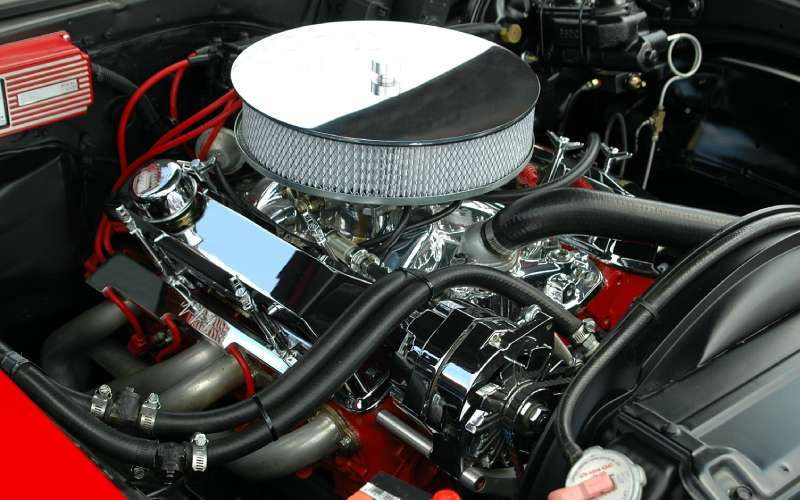Top Benefits of Regularly Changing Your Engine Oil

Oil is the lifeblood of a race car engine, and its maintenance therefore holds many advantages. Despite this, many drivers neglect their oil’s regular inspection and replacement. By discovering the top benefits of regularly changing your engine oil, you will have a better outlook on its importance, especially if you compete in high-intensity racing.
Reduced Friction
Clean oil lubricates engine components, reducing friction and improving operation. Fresh lubrication enhances engine performance, but as it ages, viscosity diminishes and friction between parts increases, leading to wear and tear.
Making oil changes a usual maintenance practice will revive the viscosity barrier to protect vital components from friction. Furthermore, racing requires engines to perform at their peak to compete for first place. Keep your vehicle operating at its best and continue aiming for high-speed pursuits by regularly changing your engine oil.
Flushed Impurities
Racing engines must operate at high RPMS for prolonged periods when faced with extreme conditions. That means that a regular oil change is necessary to improve conditions and prevent sludge buildup and contaminants from destroying the engine. Essentially, clean oil flushes out impurities to help the engine last longer. For professional racers who rely on their machines, this can mean fewer repairs and more time spent competing.
Optimized Cooling
Engines generate substantial heat, especially during races. Oil helps absorb the heat, keeping the engine as cool as possible. Fresh oil circulates more effectively, aiding in heat distribution across the engine.
Without proper oil circulation, parts could overheat, leading to potential engine failure. Keeping up with regular oil changes diminishes the risk of overheating, providing racers with a reliable performance throughout the race.
Reduced Engine Noise
Squeaks or knocks from an engine may indicate inadequate lubrication. The noises become critical in racing; too much noise signals trouble! Fresh oil improves noise reduction by helping affected parts move smoothly. An oil change can correct the oil level and reduce the sounds the engine produces.
Consistent Oil Pressure
Oil pressure ensures that oil reaches all necessary engine parts. Lowered viscosity makes oil pressure drop over time. However, a regular oil change maintains pressure levels and keeps the engine fully operational. This reliability is essential for delivering consistent performance on the track.
Improved Oil Filtration

A clean oil filter plays a significant role in trapping impurities and ensuring circulated oil stays clean. When a mechanic replaces your car’s oil, they also replace the oil filter. Changing both maximizes filtration by improving the functionality of the filter and reducing filter load by introducing purer oil. By following up with regular oil changes, racers maintain optimal filtration and safeguard their engines from potential harm.
Better Engine Reliability
Engine reliability is critical in racing. A regular oil change enhances the engine’s dependability by preventing unexpected breakdowns. Well-maintained engines deliver consistent performance, reducing the chances of failure during critical moments. This assurance allows racers to push their vehicles to the limit, confident in their machine’s ability to withstand the pressures of competition. Reliable engines also contribute to safer racing experiences, reducing accidents caused by mechanical failures.
Enhanced Turbocharger Performance
In turbocharged racing engines, engine oil becomes even more critical due to the extreme pressures and temperatures. Regular oil changes significantly enhance turbocharger performance by ensuring that the lubrication supplied is clean and consistent. Fresh oil reduces carbon buildup that can impede the movement of turbo components, allowing for quicker spool-up times and a more responsive engine.
Additionally, high-quality racing oil provides superior thermal stability, effectively safeguarding the turbocharger from the damaging effects of heat. By maintaining an optimal oil condition, racers can expect improved turbo efficiency and a heightened overall performance on the track, where agility and power are paramount.
Boosted Resale Value
Changing engine oil on a regular basis improves performance and continues to preserve resale value. Prospective buyers tend to look at a vehicle’s maintenance history, which helps them judge how important care was to the former owner and how much effort they put into enhancing the engine. This transparency and logged oil changes help justify a higher sale price, as they signal a well-maintained engine that still boasts reliability on the racetrack. In an industry where performance and reliability are paramount, having a proven record of regular oil changes positions your vehicle as a more desirable investment for future buyers.
Strengthened Driver-Mechanic Communication

A racecar driver who stays on top of oil changes happens to communicate better with their mechanics. Here’s why: regular oil changes invite drivers to get more technical with their interactions with mechanics. They allow both parties to communicate and connect, encouraging open discussions about the vehicle’s performance and emerging issues, even those beyond the oil.
When drivers become more attentive to oil changes and attuned to their vehicle’s needs, they reap the benefits and improve their vehicle’s performance. Ultimately, a collaborative approach enables drivers and mechanics to work together toward achieving better performance progress on the track.
Lengthened Engine Life
All of the benefits mentioned above, from flushed impurities to better driver-mechanic communication, contribute to a healthy engine. As a result, regular oil changes increase the lifespan of your vehicle’s engine. Furthermore, they reduce the likelihood of your car needing frequent repairs or replacements. All in all, replacing the oil regularly is probably the best and easiest thing you can do to ensure a long life for your race car’s engine.
Driven With Purpose, Our Racing Oil Remains Superior
Racing cars demand consistent maintenance to perform at their best. We hope reading about the top benefits of regularly changing your engine oil has helped you understand the intricacies and how vital it is to make this maintenance a scheduled practice.
Race car owners and mechanics understand the crucial relationship between regular oil changes and engine performance, and so do we. Driven Racing Oil stands out among racing oil brands, offering products that meet the rigorous demands of high-performance engines. By choosing Driven, racers can confidently tackle high-intensity events, knowing their engines benefit from superior protection and performance.

You must login to post comments.